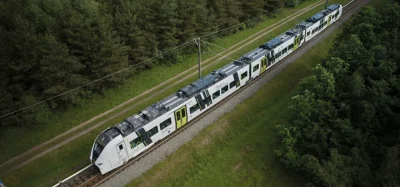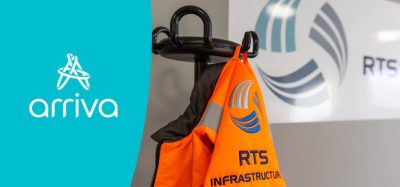Australian Government addresses skills shortage across rail industry
Posted: 7 August 2019 | Global Railway Review | No comments yet
Despite the AU$150 billion investment in rail, the industry is still feeling the pinch from the lack of skilled workers to complete designated projects, but can an action plan from NTC provide the answers?


The Australasian Railway Association (ARA) has welcomed the decision by the nation’s transport Ministers to refer the issues of rail skilled labour shortages and the harmonisation of rail industry standards to the National Transport Commission (NTC) for an action plan, with the state of Victoria leading the work.
Rail is undergoing a continuum of significant public investment as State, Territory and the Commonwealth Government are funding over AU$150 billion in new rail infrastructure projects over the next 15 years, with new and expanded heavy and light rail, metro and freight rail projects planned or underway in most Australian states and capital cities.
ARA has previously warned this plethora of projects would be delayed and delivered over-budget if issues causing skilled labour shortages are not addressed in a collaborative approach between government and industry.
A range of senior industry leaders from companies involved in rail construction, infrastructure and operations addressed the nation’s transport Ministers at the 11th Transport and Infrastructure Council in Adelaide, a biannual meeting of the federal, state and territory transport Ministers. The executives gave Ministers first-hand accounts of the current challenges due to skills and resources shortages.
Danny Broad, ARA CEO, said: “Industry is looking to work with government in a joint partnership to solve these problems. The decision gives us a framework by which to begin to address the issues. Governments can’t leave it to a nebulous training ‘market’ to resolve, because it’s just not working. These are national issues requiring a national approach, which reinforces the need for jurisdictions to work together to ensure consistency and alignment between jurisdictions.”
At the meeting, the ARA and industry leaders reinforced the need for industry and government to address the challenges identified in the 2018 BIS Oxford Economics Report Rail Skills Crisis- A Call to Action, which highlighted the growing shortfall of skilled rail workers to meet future demands.
Industry also raised the following needs with government:
- To create a dynamic, up-to-date and publicly available forward pipeline of rail projects over a 10 year period that includes skills profile for each project so that planning, resourcing and sequencing can be undertaken by industry and government
- Rail skills training to receive its fair share of government investment
- The need for quality rail training facilities to be elevated to national centres of excellence so that rail employees and companies across the country can access quality training at an industry level
- The need to address unnecessary jurisdictional barriers that inhibit seamless transferability of skilled labour between state rail jurisdictions. Different jurisdictional operational environments, rail standards and technologies currently lead to the need for extensive and costly retraining and reaccreditation needed when staff seek to work on different networks. Modularised training would reduce the need for extensive retraining
- Cost pressures built into current tendering and procurement processes mitigate against training of skilled workers. Innovative solutions are needed to facilitate industry-wide training. Solutions could include an industry-wide training levy to fund training, and dedicated programmes to identify target groups
- The imposition of project quotas in contracts for major construction jobs is not necessarily the most effective way of addressing skill shortages. Project timeframes are often shorter than apprenticeships themselves, and target groups are often not aligned to skills shortage areas. There are inconsistent approaches across the country. Resolving some of these issues would facilitate improved training.
Broad concluded: “ARA looks forward to working with the NTC and the state of Victoria on behalf of the rail industry to put in place practical measures to ensure we maximise governments’ investments in Australia’s passenger and freight networks.”
Global Railway Review Autumn/ Winter Issue 2025
Welcome to 2025’s Autumn/ Winter issue of Global Railway Review!
The dynamism of our sector has never been more apparent, driven by technological leaps, evolving societal demands, and an urgent global imperative for sustainable solutions.
>>> Read the issue in full now! <<<
Related topics
Related organisations
Australasian Railway Association (ARA), National Transport Commission (NTC)







